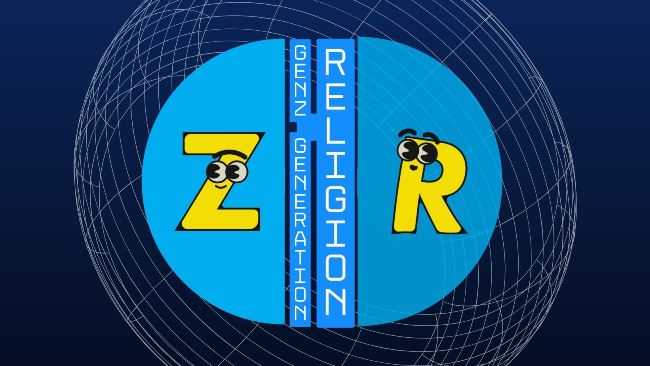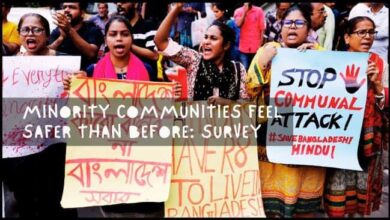Religion Should Be Separated from the Gen Z Generation

The 21st century, marked by unprecedented advancements in science, technology, and human rights, has brought significant challenges due to the interaction of religion with the state and politics. Generation Z, or Gen Z, characterized by their global connectivity, scientific mindset, and emphasis on individual rights, faces unique obstacles when religion is not separated from state and political affairs.
It is essential to understand why religion-based politics should be banned in Bangladesh and why religion must be separated from both the state and the emerging youth.
Don’t Miss Out The Stories:
-
Children to Become a Minority in the Population, the World to Face Diverse Crises
-
Signs of Used Cooking Oil: Degradation – Health Hazards, Regulations & Compliances
Science and Rational Thinking vs. Religious Doctrine
Conflict: Religious doctrines often conflict with scientific evidence. For instance, the theory of evolution, a cornerstone of biology, is rejected by many religious groups. Youths, who rely on science to understand the world, find this clash detrimental to their intellectual growth.
Example: In some Bangladeshi schools, religious beliefs are prioritized over scientific facts, hindering students’ understanding of modern biology, crucial for fields like medicine and environmental science.
Gender Equality vs. Religious Patriarchy
Conflict: Most religions uphold patriarchal structures that promote gender inequality, in contrast to matriarchal perspectives that support women’s empowerment and equality.
Example: Religious laws in Bangladesh governing inheritance and testimony often disadvantage women, clashing with the principles of gender equality.
Freedom of Speech vs. Blasphemy Laws
Conflict: Religion-based politics often impose blasphemy laws that curtail freedom of speech, especially harmful to Gen Z, who value open dialogue and expression.
Example: In Bangladesh, the Digital Security Act has been used to silence dissent and criticism of religious figures, suppressing the voices of young activists and journalists.
LGBTQ+ Rights vs. Religious Conservatism
Conflict: Religious doctrines often condemn LGBTQ+ identities, leading to discrimination and violence against these communities.
Example: LGBTQ+ individuals in Bangladesh face legal and social oppression, driven by religiously inspired laws and norms, violating the Universal Declaration of Human Rights (UDHR).
Secular Education vs. Religious Indoctrination
Conflict: Secular education encourages critical thinking, whereas religious education often promotes unquestioning adherence to dogma.
Example: Bangladeshi madrasas focus heavily on religious teachings at the expense of science and critical thinking, limiting students’ future opportunities.
Democratic Values vs. Theocratic Governance
Conflict: Democracy depends on separating religion from the state to ensure equal rights for all citizens, regardless of beliefs. Religion-based politics, however, can lead to theocratic governance, where laws are based on religious texts instead of democratic consensus.
Example: In countries like Iran, religious leaders hold ultimate power, suppressing democratic movements. A similar scenario could arise in Bangladesh if religion continues to influence politics.
Pluralism vs. Religious Exclusivism
Conflict: Religion-based politics often promotes a single religion, marginalizing others and leading to social conflict.
Example: The persecution of religious minorities like Hindus and Buddhists in Bangladesh is often incited by the rise of religiously motivated political parties.
Universal Human Rights vs. Religious Laws
Conflict: Many religious laws contradict the UDHR, particularly regarding women’s rights, freedom of religion, and education rights.
Example: The application of Sharia law often conflicts with the UDHR, especially in the treatment of women and non-Muslims, leading to human rights violations.
Economic Development vs. Religious Restrictions
Conflict: Religious restrictions, such as prohibitions on interest (riba) in Islamic finance, can hinder economic innovation and growth.
Example: Reluctance to adopt conventional banking systems in some Muslim-majority areas of Bangladesh limits economic growth and access to financial services for the youth.
Health and Wellness vs. Religious Stigma
Conflict: Religious stigma against certain medical practices, like vaccinations or reproductive health services, endangers public health.
Example: Opposition to polio vaccination campaigns by some religious communities has led to outbreaks, jeopardizing children’s health.
Environmental Protection vs. Religious Fatalism
Conflict: Some religious beliefs discourage active environmental conservation, viewing natural disasters as divine will rather than preventable events.
Example: Resistance to adopting environmental policies in some conservative areas of Bangladesh exacerbates climate change impacts, particularly affecting coastal communities.
Youth Empowerment vs. Religious Hierarchies
Conflict: Religious hierarchies often discourage questioning and innovation, which are essential for empowering youth in the modern era.
Example: Young activists advocating for social change in Bangladesh frequently face resistance from religious leaders who oppose challenges to traditional norms.
Final words
The integration of religion into state and politics, particularly through religion-based political parties, poses significant threats to the rights and well-being of Gen Z in Bangladesh. The examples provided illustrate how religious laws, norms, and politics often conflict with the principles of the UDHR and the aspirations of scientifically-minded, globally-connected youth. To safeguard Bangladesh’s future in this era of science and technology, separating religion from the state and banning religion-based politics is essential to uphold the values of equality, freedom, and progress.


